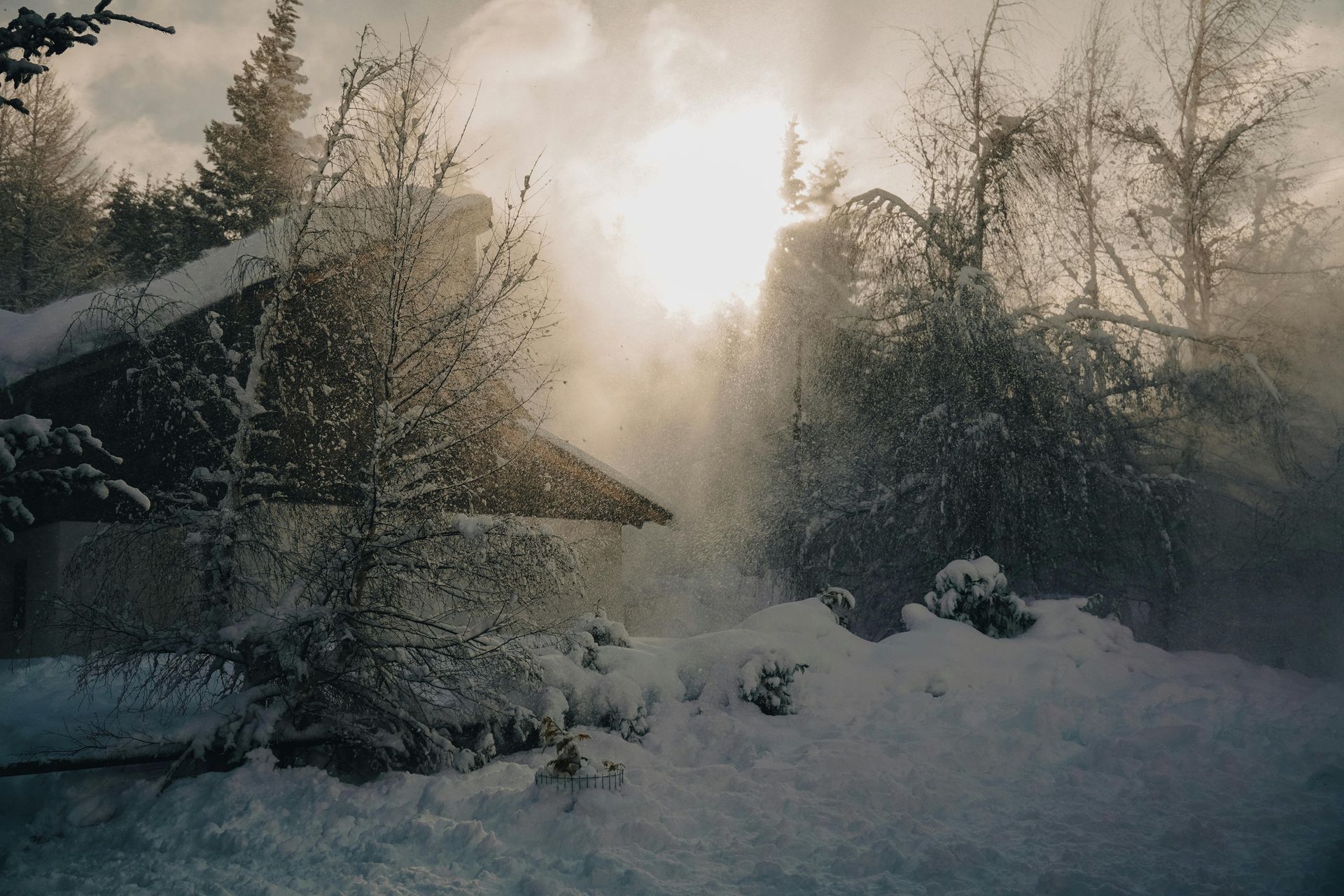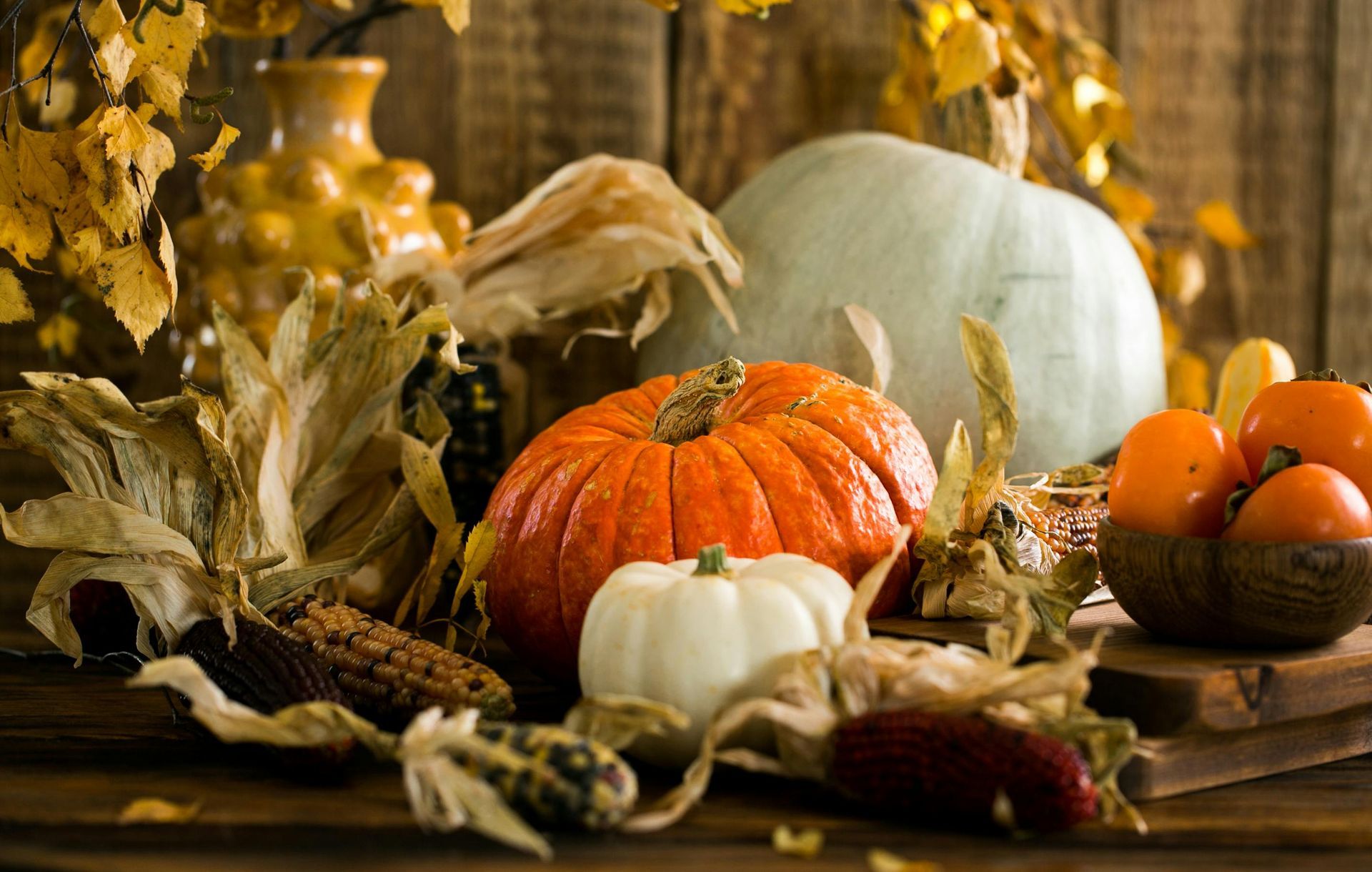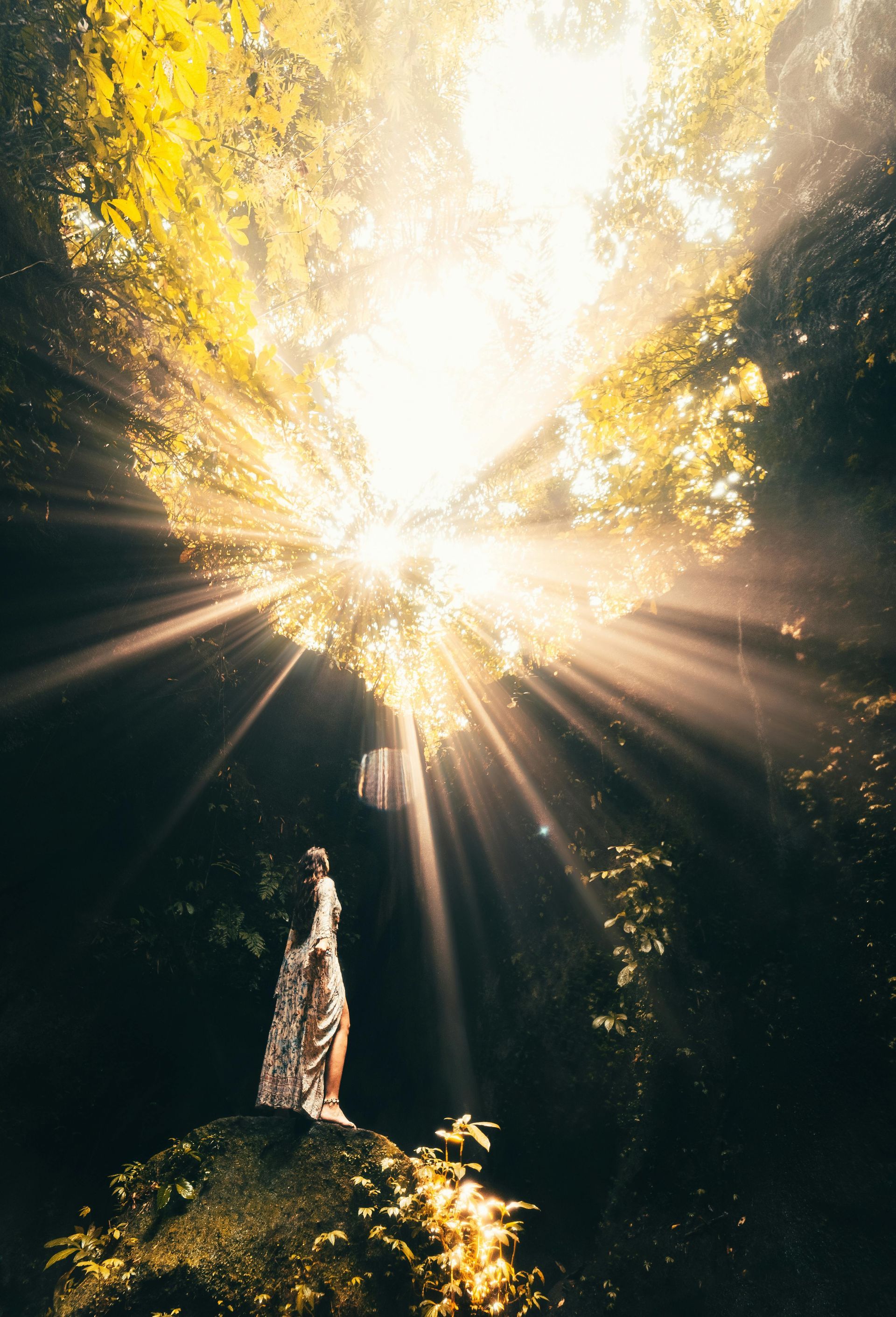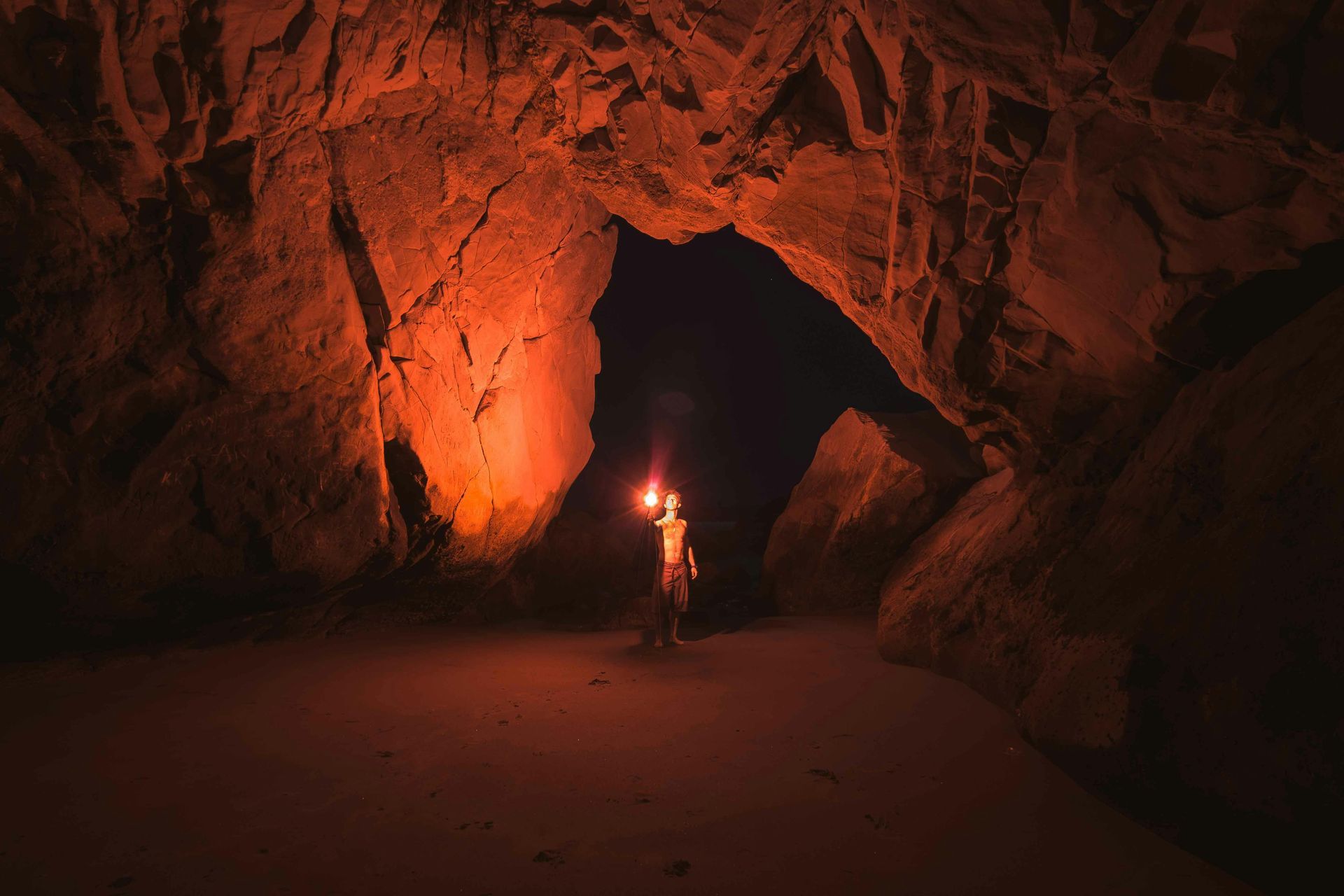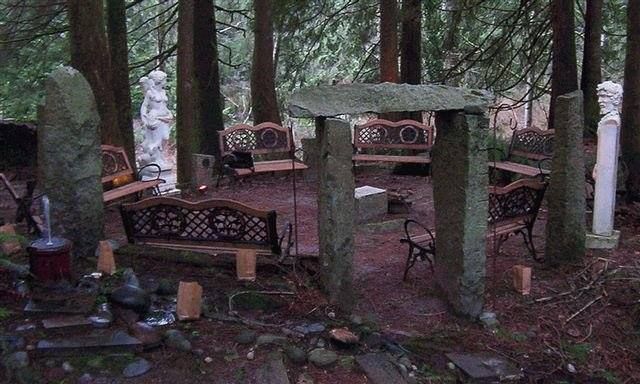Thoughts from the Dean's Desk
Kara D Williams
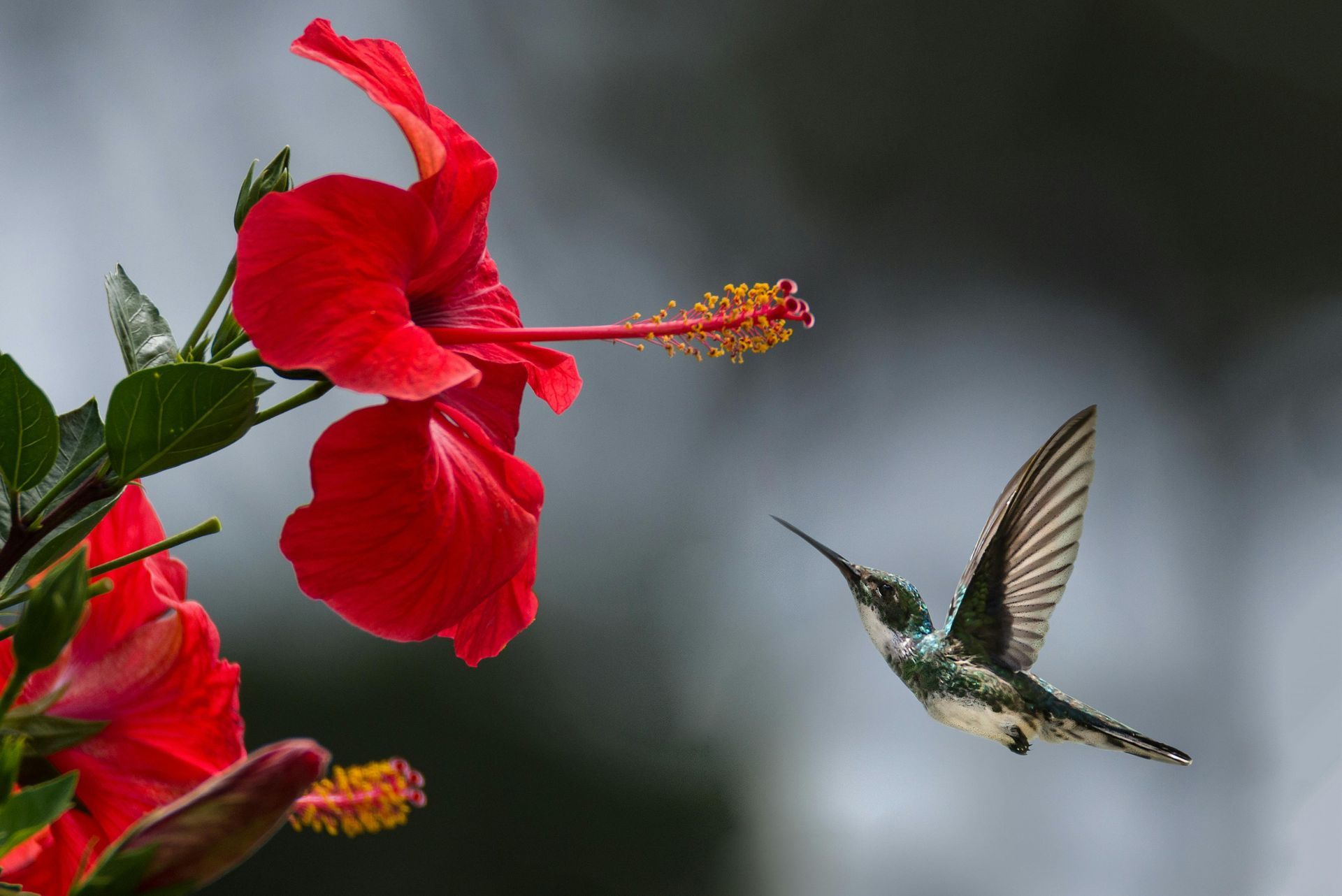
Nature, Spirit, and Self: A Wiccan View of the Sacred
In the rich tapestry of Pagan traditions, of which Wicca is one, the divine is not a distant force residing in some unreachable realm it is here, now, and everywhere. Many Pagan worldviews, both ancient and modern, tend to emphasize immanence: the idea that the sacred is woven into the fabric of nature, the human experience, and the soul itself. This stands in gentle contrast to the transcendence often emphasized in other religions, where the divine is typically seen as above and beyond the material world.
One of my friends, a Zen Buddhist monk, and I were discussing the nature of the divine. The conversation began very transcendent in its concepts, but before we were done, we both had reached an agreement of immanence and the idea that no one can really know the answer to this topic until we die but that continuing to consider it and discuss it allows us to grow and develop each in our own religion. This continuing dialogue within oneself or with others, is part of my definition of what it means to be a priestess.
In cultures like Ancient Greece, Rome, and among the Celts, deities were intimately connected to the natural world and daily life. Zeus ruled the skies; Demeter governed the harvest, and Brigid tended the hearth and the forge. These gods were not abstract concepts they were part of the landscape, the seasons, and the rhythms of community life. To honor them was to honor the earth, the cycles of nature, and the human experience itself.
This immanent view of divinity fostered a sense of spiritual intimacy. Sacred groves, rivers, and mountains were not merely symbols; they were embodiments of the divine. Worship was not confined to temples but extended to fields, forests, and homes. This is still true of Wiccans today. We much prefer to worship in nature and not inside buildings. When we do worship within a building, we are much more likely to choose one with open spaces, lots of plants, perhaps a building connected to a fountain or garden, and large unobstructed windows!
This belief of immanence causes many Pagans to be concerned for the environment, support laws and reform in how we treat each other and our food. The belief that we are all connected means that Pagens often value consent and more natural solutions to problems. They tend to grow their own food or be very aware of how it is grown and processed. Many of them choose simpler lives and to live off the grid to be more involved with the nature around them. They support clean water and clear air reforms. Certainly, there are many non-pagans who also do these things, but for many Pagans this is a part of their spiritual belief system.
Beyond public worship, ancient Pagan mystery traditions like the Eleusinian Mysteries and Orphic rites delved into the inner dimensions of spirituality. These schools taught that the soul carried a divine spark, and through ritual, initiation, and personal transformation, one could awaken to this inner divinity. Today’s Spring Mysteries Festival that is hosted by the Aquarian Tabernacle Church (ATC), continues this work for modern Pagans.
The journey inward was sacred in those ancient cultures. The divine was not only in the world, but it was also within the self. This perspective laid the groundwork for spiritual practices that emphasized personal gnosis, or direct spiritual knowledge, as a path to enlightenment.
Contemporary Pagan paths like Wicca, Druidry, and eclectic witchcraft have revived and reimagined these ancient ideas. Practices such as drawing down the moon, invoking deities, and working with archetypes reflect a belief in the divine as present and accessible. We work with crystals because of their divine energy and look at the skies as a map given to us by the divine.
Self-initiation and personal gnosis are also central to many modern traditions, empowering individuals to forge their own spiritual paths. The divine is not something one must seek in distant heavens; it is something one can experience directly, here and now. Wiccans find the divine in their morning prayers as well as within themselves as they move through their day.
Many Pagan practices view the body and soul as a temple of the divine. This belief shapes values around self-respect, body positivity, and mental wellness not just as personal goals, but as spiritual acts. Working to heal your trauma or correct your diet or attending to your health are all part of a religious practice for many Pagans.
Caring for oneself becomes a form of devotion. The sacred is not only in rituals and altars, but also in breath, movement, emotion, and thought. To honor the self is to honor the divine. Here at WSTS, we often remind students to be kind to themselves. To speak to themselves as if they are being spoken to by the divine who has their best and highest good in mind for them every day.
Pagan and Wiccan perspectives on immanence offer a profound invitation to see the world, the self, and the community as sacred. In a time when many seek deeper connection, healing, and meaning, this worldview reminds us that the divine is not far away; it is already here. It lives in the turning of the seasons, the rhythm of breath, and the quiet magic of everyday life. For Wiccans and other modern Pagans, this is not just a belief; it’s a way of being. To walk this path is to honor the sacred in all things, and to remember that we are never separate from the divine; we are part of it.
“Wicca's temples are flowered-splashed meadows, forest, beaches, and deserts.”
― Scott Cunningham, Wicca: A Guide for the Solitary Practitioner


